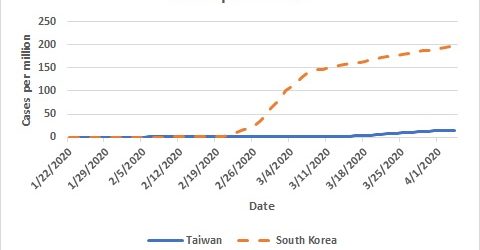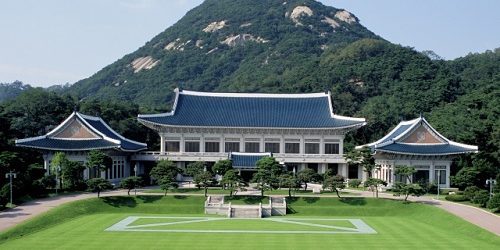Have a Chinese Competitor Spy on the Samsung’s Audit Committee?… Business World ‘Panics’
2020-10-5, Money Today [TRANSLATION]
The South Korean government and lawmakers are pushing ahead with amendments to the Commercial Act and Fair Trade Act in the name of creating a “fair economy.” Companies are opposing the amendment. In the midst of fierce opposition from the business community, we will examine the toxic provisions of the amendment and look for alternatives and additional legislative matters to revitalize businesses.
A Chinese competitor’s director on the Samsung board of directors? Business community sleepless due to industrial espionage concerns 1-① Separate election of audit committee members, major shareholders limited to 3% voting rights restrictions
“It’s no different than having an enemy general participate in a friendly forces operations meeting.” [Professor Song Won-geun (송원근), Yonsei University]
The government-promoted amendment to the Commercial Act has a separate election for audit committee members and a 3% restriction on voting rights for major shareholders. It is new to South Korea and there are no such legislative examples abroad.
They say it is “chaebol reform,” but…
The separate election clause of the amendment requires that at least one or more members of the board of directors, who become audit committee members be selected separately from the stage of director election. At this time, the amendment makes the voting rights of the largest shareholder limited to a maximum of 3%, including shares of related persons.
The intent of the introduction is to correct the process of electing auditing committee members, who have been criticized for being titular, befitting the taste of the largest shareholder. The government, the ruling party, and some opposition parties take the position that it is a necessary measure to normalize companies, given the special situation in Korea called “chaebol.”
National Assemblyman Park Yong-jin (박용진), Democratic Party of Korea, who has been leading the amendment process, said, “The board of directors can function properly only when the path is opened so that the composition of the board of directors can be diversified.”
29 out of 30 companies exposed to speculative capital
The business community also admits that the audit function has been inadequate in some companies. The problem is that if the amendment is implemented as the original plan, the company’s right to defend itself is virtually not guaranteed, and because of this, the scope of the affected companies is too broad.
According to the Federation of Korean Industries [FKI, 전국경제인연합회 (전경련)], after the implementation of the revised bill, up to 29 of the top 30 companies by domestic market capitalization can have foreign institutional investors advocate for their positions on the board of directors.
For example, in the case of Samsung Electronics (₩58,700), the largest shareholders and related parties such as Chairman Lee Kun-hee (이건희) and Vice Chairman Lee Jae-yong (이재용), Samsung C&T (삼성물산), and Samsung Life Insurance (삼성생명) have a 21.2% stake, but voting rights are limited to 3% when the audit committee is elected. On the other hand, combining the shares of just four foreign institutional investors–Black Rock, Vanguard, Capital Research and Management, and the Norwegian Bank Investment Steering Committee–produces the voting rights for these four institutions that exceed 10%.
If foreign speculative capital or competitors join hands with the “intention” to control, it is impossible to rule out Chinese competitors or “corporate hunters” such as the hedge fund manager Karl Icahn, who raided KT&G in 2006, from becoming audit committee members of Samsung Electronics or Hyundai Motors.
“Powerful” auditor can access business reports and accounting books…There is no legislative precedence abroad
Considering the authority of the audit committee, the concerns of the business community can be felt more vividly. The audit committee members have the right to receive business reports, investigate the company’s business, the right to request various documents and accounting books, and the right to request business reports from subsidiaries. They are also members of the board of directors, who make key management decisions. In fact, the core of a company can be exposed to enemy forces.
FKI’s Corporate Planning Team leader Yoo Jeong-joo (유정주) stated, “The separate election system for audit committee members, contrary to government expectations, can serve as a platform for foreign speculative capital or competitors to dominate the board of directors of domestic companies…it can be an opportunity to easily acquire industrial secrets or provide an entry to corporate take over and raid.”
It is also because of these concerns that countries, such as the United States and the United Kingdom, where shareholders’ rights are strong and speculative capital has been developed earlier, are cautious about the separate election of audit committee members and restrictions on the voting rights of the largest shareholders. There has been no case of a separate election system for audit committee members abroad.
In the blaze of checks on large companies…small- and medium-size companies “tremble with fear”
Some people in the business community point out that the amendment to the Commercial Act, which the government and political circles promote as “chaebol reform,” could actually push small and medium-sized enterprises to the corner. Of the listed companies subject to major regulations under the amendment to the Commercial Act, only 15% of the listed companies are large and the rest are small- and medium-sized companies.
An FKI official said, “There is a greater concern that small- and medium-sized enterprises will become targets of external forces rather than large companies with a strong market interest and a solid internal defense system…If the already vulnerable small- and medium-sized business ecosystem collapses, it will become out of control.”
Until the 20th National Assembly (May 30, 2016-May 29, 2020), domestic politics were generally cautious about introducing separate elections for audit committee members because of this problem. Former lawmaker Kim Jin-tae (김진태), who served as secretary of the Saenuri Party (now People’s Power Party) at the National Assembly’s Legislative Judicial Committee in charge of the Commercial Act, opposed the bill, saying, “Just give [foreign competitors and corporate raiders] auditing authority?”
[Truncated]
The government is going to introduce a multi-representative lawsuit system in the amendment of the Commercial Act, which is causing concerns in the business community, because the risk of litigation by corporations can rapidly increase.
The amendment stipulates that if a company holds only 1/100 of the shares of unlisted companies or 1/10,000 of the shares of a listed company, the company can file a lawsuit against a subsidiary that has invested 50% or more. [See below for examples.]
If the amendment goes into effect, SK Co., Ltd. (₩202,500, $173.94/share), a holding company of SK Group, can secure a stake of ₩1.39665 billion ($1.2 million), 0.01% of the market capitalization of ₩13.9665 trillion ($12 billion) (as of September 29). Then it will be possible for SK Co., Ltd. to file a lawsuit against SK E&S and SK Siltron, which own 50% or more of the shares. It means that a lawsuit can be filed against SK Group for the price of a house in Seoul.
For small- and mid-sized companies, the “threshold” is even lower. In mid-sized holding companies such as Pulmuone (풀무원) (₩17,650, $15.16/share) and Korea Kolmar Holdings (한국콜마홀딩스) (₩27,150, $23.32/share), a company can bring a lawsuit by securing ₩40 million ($34,000) to ₩60 million ($52,000) worth of shares, and for small businesses, just ₩10 million ($8,600).
If we go further, within the four major groups, more than 50 companies are exposed to the risk of multiple representative lawsuits. In Samsung Group, if one has around a ₩34.7 billion ($29.8 million) stake in Samsung Electronics 삼성전자 (₩58,700, $50.41/share), then the company can sue seven Samsung companies that Samsung Electronics owns (shares in percentages): Samsung Display (삼성디스플레이) (84.8%), Samsung Medison (삼성메디슨) (68.5%), Samsung Electronics Sales (삼성전자판매) (100%), SEMES (세메스) (91.5%), Samsung Electronics Service (삼성전자서비스) (99.3%), Steco (스테코) (70%), and Samsung Electronics Logitech (삼성전자로지텍) (100%), etc.
If one owns ₩1.2 billion ($1.03 million) worth of shares of Samsung Life Insurance (₩60,800, $52.21/share), one can file a lawsuit against five companies, including Samsung Card (삼성카드), Samsung Asset Management (삼성자산운용), Samsung SRA Asset Management (삼성SRA자산운용), Samsung Life Insurance Service Insurance Agency (삼성생명금융서비스보험대리점), and Samsung Life Insurance (삼성생명손해사정).
Following the introduction of a multi-representative litigation system, owning a tiny fraction of Hyundai Motor Company (현대차) (₩187,000, $160.59/share) Group means one can sue Hyundai Autoron (현대오트론), Hyundai Capital (현대캐피탈), and Hyundai Kepico (현대케피코); For SK Group, one can sue 11th Street (11번가), SK Energy (SK에너지), SK Global Chemical (SK종합화학), SK Incheon Seokkyu Chemical (SK인천석규화학), SK Mobile Energy (SK모바일에너지), SK Lubricants (SK루브리컨츠), SK Hynix System IC (SK하이닉스시스템) , and SK Broadband (SK브로드밴드); and within the LG Group (LG그룹), Hi Plaza (하이프라자) and Hi M Solutech (하이엠솔루텍) become litigation-capable companies under the amendment.
[Truncated]
Source: https://news.mt.co.kr/mtview.php?no=2020100416014116639






